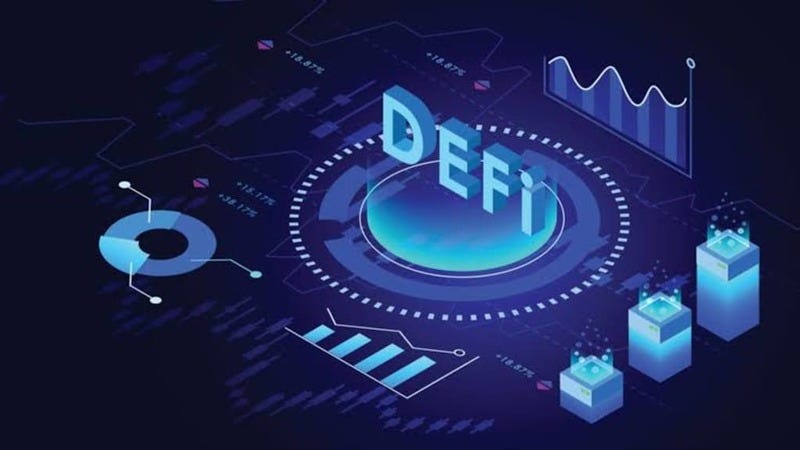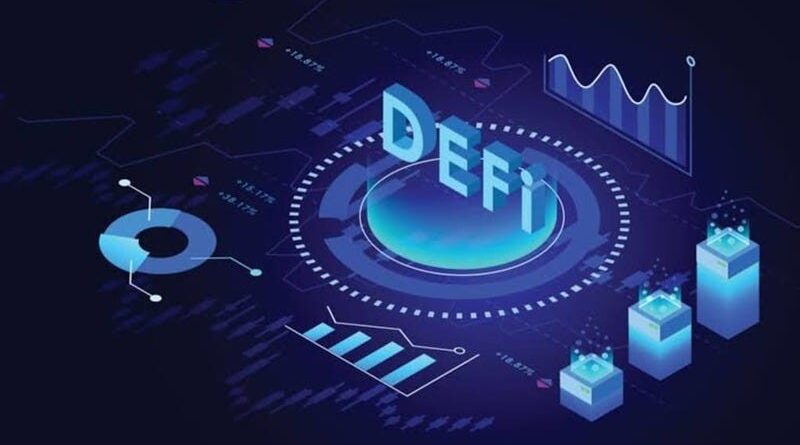The Future of Decentralized Finance (DeFi): A Glimpse into a Transformed Financial Landscape
The Future of Decentralized Finance (DeFi): A Glimpse into a Transformed Financial Landscape
Decentralized Finance (DeFi) has emerged as a revolutionary force in the financial world, offering a glimpse into a future where individuals have greater control over their finances and traditional financial institutions are challenged by a more democratized system. Built on the bedrock of blockchain technology, DeFi bypasses intermediaries like banks and brokers, enabling peer-to-peer financial transactions through self-executing smart contracts. While still in its nascent stages, DeFi holds immense potential to reshape the financial landscape, offering a plethora of benefits and opportunities alongside inherent challenges that need to be addressed.
A Glimpse into the DeFi Future:

Several key trends are expected to shape the future of DeFi:
- Enhanced Scalability and Interoperability: Current DeFi protocols often face scalability limitations, hindering widespread adoption. Layer 2 solutions and interoperable blockchain networks are expected to address these issues, enabling faster transactions and seamless communication between different DeFi protocols.
- Evolution of Decentralized Autonomous Organizations (DAOs): DAOs, community-governed entities powered by smart contracts, are poised to play a significant role in DeFi governance and decision-making. The future could see DAOs managing investment funds, issuing loans, and even acting as regulatory bodies within the DeFi ecosystem.
- Integration with Traditional Finance: As DeFi matures, traditional financial institutions are likely to explore integrating DeFi services into their offerings. This could involve offering DeFi products to their customers or collaborating with DeFi protocols to enhance their own services.
- Focus on Security and Regulation: Security breaches and scams have plagued the DeFi space, highlighting the need for robust security measures and regulatory frameworks. The future is likely to see increased emphasis on security audits, bug bounties, and potential regulatory interventions to ensure user protection and foster responsible innovation.
- Emergence of Novel DeFi Applications: Beyond traditional financial services like lending and borrowing, DeFi is expected to spawn innovative applications in areas like decentralized insurance, fractional ownership of assets, and even prediction markets.
Potential Benefits of a DeFi-powered Future:
- Financial Inclusion: DeFi offers the potential to reach the unbanked and underbanked population, providing access to financial services that may be unavailable through traditional channels.
- Increased Transparency and Efficiency: DeFi transactions are recorded on immutable blockchains, promoting transparency and reducing the risk of manipulation or fraud. Smart contracts automate processes, potentially leading to increased efficiency and reduced costs.
- Democratization of Finance: DeFi empowers individuals to manage their finances without relying on centralized institutions, fostering greater control and participation in the financial system.
- Innovation and Competition: The open and permissionless nature of DeFi fosters innovation and competition, potentially leading to the development of new and improved financial products and services.
Challenges and Considerations:
Despite its potential, DeFi faces several challenges that need to be addressed for widespread adoption:
- Security vulnerabilities: Smart contract vulnerabilities and hacks remain a major concern, requiring continuous improvement in security protocols and code audits.
- Regulatory uncertainty: The lack of clear regulatory frameworks surrounding DeFi creates uncertainty for both users and developers. Establishing regulations that foster innovation while protecting consumers is crucial.
- User experience: DeFi applications can be complex and challenging for new users to navigate. Simplifying user interfaces and improving educational resources are essential for broader adoption.
- Volatility and risk: The cryptocurrency market is inherently volatile, and DeFi products are often tied to these assets, posing potential risks for users.
Conclusion:
The future of DeFi is brimming with possibilities. While challenges remain, the potential benefits of a decentralized financial system are undeniable. As DeFi continues to evolve, addressing security concerns, fostering regulatory clarity, and improving user experience will be critical for its mainstream adoption. Ultimately, DeFi has the potential to empower individuals, democratize finance, and pave the way for a more inclusive and efficient financial landscape.
Privacy Coins: A Fight for Anonymity in the Digital Age – Crypto’s Shadow Warriors
The Rise of Central Bank Digital Currencies (CBDCs): A New Era in Money?
